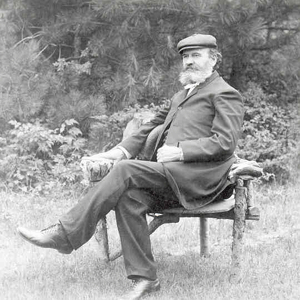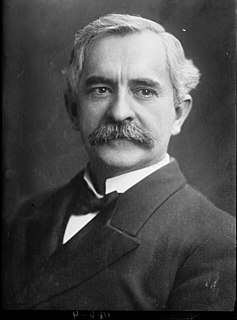A Quote by Theodore Parker
There is no intercessor, angel, mediator, between man and God; for man can speak and God hear, each for himself. He requires no advocates to plead for men.
Related Quotes
All men ought to think of Christ because of the office Christ fills between God and man. He is the eternal Son of God through whom alone the Father can be known, approached, and served. He is the appointed Mediator between God and man through whom alone we can be reconciled with God, pardoned, justified, and saved.
Thus in this oneness Jesus Christ is the Mediator, the Reconciler, between God and man. Thus He comes forward to MAN on behalf of GOD calling for and awakening faith, love and hope, and to GOD on behalf of MAN, representing man, making satisfaction and interceding. Thus He attests and guarantees to God's free GRACE and at the same time attests and guarantees to God man's free GRATITUDE.
For the essence of sin is man substituting himself for God [Gen. 3:1-7], while the essence of salvation is God substituting himself for man [2 Cor. 5:21]. Man asserts himself against God and puts himself where only God deserves to be; God sacrifices himself for man and puts himself where only man deserves to be.
When human affairs are so ordered that there is no recognition of God, there is a belittling of man. That is why, in the final analysis, worship and law cannot be completely separated from each other. God has a right to a response from man, to man himself, and where that right of God totally disappears, the order of law among men is dissolved, because there is no cornerstone to keep the whole structure together.
There is One God and One Mediator between God and man, the man Jesus Christ (cf. I Tim. 2:5). For He still pleads even now as man for my salvation; for He continues to wear the Body which He assumed, until He make me a god by the power of His Incarnation; although He is no longer known after the flesh (cf. II Cor. 5:16) ? I mean, the passions of the flesh, the same, except sin, as ours.
Man is a fallen star till he is right with heaven: he is out of order with himself and all around him till he occupies his true place in relation to God. When he serves God, he has reached that point where he doth serve himself best, and enjoys himself most. It is man's honour, it is man's joy, it is man's heaven, to live unto God.
Let the average man be put to the proof on the question of who is above, and his true position will be exposed. Let him be forced into making a choice between God and money, between God and men, between God and personal ambition, God and self, God and human love, and God will take second place every time.
The glory of God is the living man, but the life of man is the vision of God', says St. Irenaeus, getting to the heart of what happens when man meets God on the mountain in the wilderness. Ultimately, it is the very life of man, man himself as living righteously, that is the true worship of God, but life only becomes real life when it receives its form from looking toward God.
We have accounts of the deification of men in pagan mythology. But I do not remember any account of a god becoming a man, to help man. Whoever heard of Jupiter or Mars or Minerva coming down and attempting to bear the burdens of men? The gods were willing enough to receive the gifts of men, but Christianity is unique in the fact that our God became a man with human infirmity and emptied Himself of the glory of heaven, in order that He might take upon Himself the sins, diseases and weakness of our humanity.
By His gracious condescension God became man and is called man for the sake of man and by exchanging His condition for ours revealed the power that elevates man to God through his love for God and brings God down to man because of His love for man. By this blessed inversion, man is made God by divinization and God is made man by hominization. For the Word of God and God wills always and in all things to accomplish the mystery of His embodiment.
The priest therefore saw what the anchorite could not. That God needs no witness. Neither to himself nor against. The truth is rather that if there were no God then there could be no witness for there could be no identity to the world but only each man's opinion of it. The priest saw that there is no man who is elect because there is no man who is not. To God every man is a heretic.
In the present age, man proves his separation from his Creator by his spirit of self-sufficienc y and positive rejection of God. The present issue between God and man is one of whether man will accept God's estimate of him, abandon his hopeless self-struggle, and cast himself only on God who alone is sufficient to accomplish his needed transformation.




































